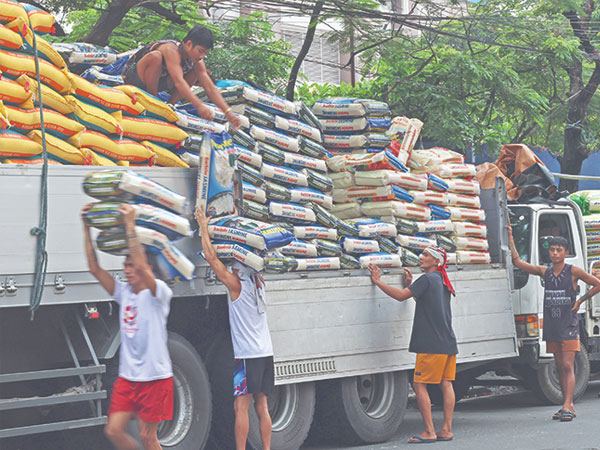 WHILE rice importation should remain with the private sector, the Department of Agriculture (DA) wants them to share in the government’s buffer stocking responsibility.
WHILE rice importation should remain with the private sector, the Department of Agriculture (DA) wants them to share in the government’s buffer stocking responsibility.
Agriculture Secretary Francisco Tiu Laurel Jr. said private importers will now be required to share the responsibility of maintaining the country’s rice buffer stock.
This is part of the agency’s push to restore the National Food Authority’s (NFA) key regulatory powers through amendments to the Rice Tariffication Law (RTL).
“They have to have skin in the game,” Laurel said. “If we aim to have a 20-day rice buffer stock, we’re thinking of a 50-50 split between the NFA and the private sector.”
“With the private sector partly doing the buffer stocking, sourcing from local rice farmers, it will also reduce the cost of buffer stocking for government.”
Under the proposed setup, rice imports will follow a controlled model similar to the Sugar Regulatory Administration’s (SRA) import program, where only qualified importers are given import allocations. Importers, in turn, should procure palay from local farmers at fair prices for buffer stocking.
Currently, the NFA can only purchase around 5 percent of the national palay output due to limited warehousing and drying capacity, and is confined to stocking rice for emergency and disaster relief.
Meanwhile, the DA chief also noted that the agency should have regulatory power over rice imports to prevent oversupply, which has led to depressed farmgate prices.
“We must regain control,” Laurel said. “Rice is a commodity imbued with too much public interest to leave entirely to the private sector.”
He noted that if needed, the agency’s attached corporations, such as Food Terminal, Inc. (FTI) and Planters Products Inc. (PPI), could import on behalf of the government.
These are some of the agency’s proposed amendments, which also include integrating the NFA into the Enforcement Group under the Anti-Agricultural Economic Sabotage Act to act against rice-related violations.
Another key reform is the establishment of a palay floor price, which ensures that farmers receive fair compensation and shield them from market price manipulation.
“The proposed changes aim to strike a balance between ensuring affordable rice for consumers and protecting the livelihoods of Filipino rice farmers,” the DA said.














© Copyright 2025 The SSResource Media.
All rights reserved.